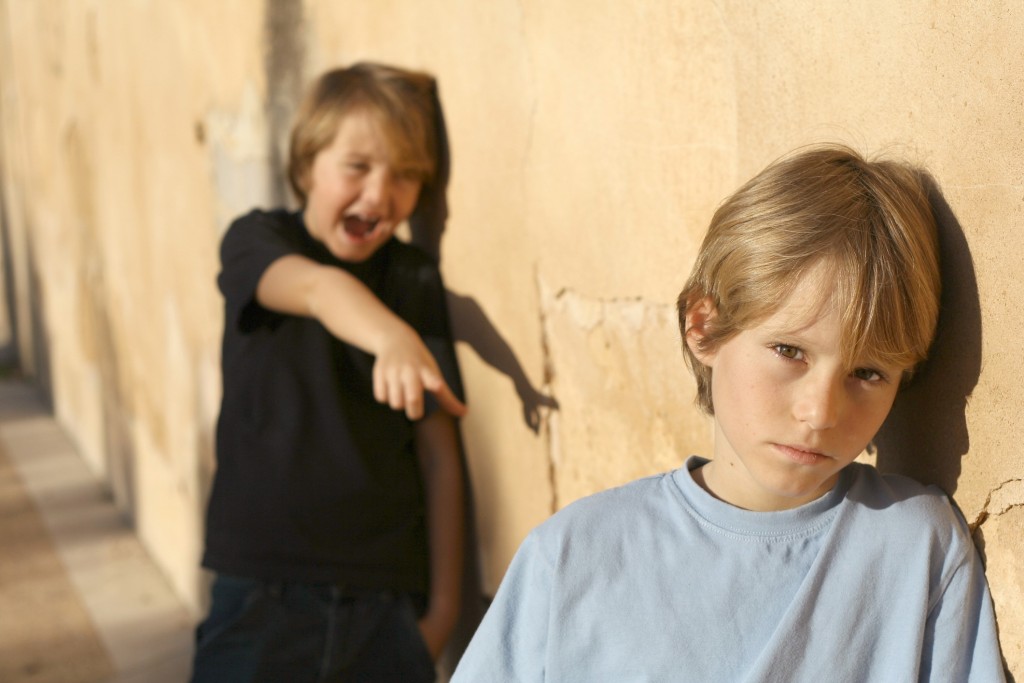Every parent, sooner or later, faces with the problem of child bullying. One of the greatest fears a parent has is whether their child is being bullied or hurt. But what happens when, one late morning, you receive a phone call from the principal’s office, hearing the principal say that your child has been involved in an incident and that you have to come to school as quickly as possible? You immediately think that maybe your child is hurt and you rush over there and find out that in fact your child has been bullying other children at school. How to deal with this? How has it come to this? There has been a pattern in behavior with children who bully other children and it describes the majority of child bullies.

Growing Into Bullies – It All Comes from Home
As it is said like parent, like child – children model what they see. If a child is being abused or disrespected at home by his or hers parent, that child will likely imitate that kind of behavior at school. Because their parents act that way, they are going to think that this type of behavior is normal. These kids often develop anxiety and depression and, later in life, drug and alcohol problems. Because abuse is cyclical, it is likely that they will also abuse their children in the future.
The Forgotten Child
One of the reason a child acts out as a bully in school maybe because it feels invisible at home. Children need to be constantly loved and respected by the adults who surround them, especially from their mother and father.

A child always seeks approval and attention from their parents, from the day they are born until the day they die, so if they don’t get enough love and attention at home, they feel unimportant and neglected. That feeling they get, turns into anger and resentment which results in bullying other children at school.
The Child Who Gets Everything
Opposed to the forgotten child, there is the child who has been given too much power. The case with these children is that they are given everything at home, without limitations and rules. They then grow up feeling that they are more entitled and more powerful than others. They then believe that they have the right to bully other children at school, like they are doing at home with their parents.
Having Problems at School
It has happened that some children bully because of the academic stress. If they are struggling in the classroom and feel like no one is going to help them, they begin to lose hope, and when that happens they act out. Their bullying focuses on higher achieving kids.

Not all kids at school are popular and have friends, and often children who are isolated or are disliked by their classmates start bullying because they think that that way, they can gain some social control. Those kids have a little distorted way of thinking and believe that controlling other kids means that they are their friends.
Victims with Low Self-Esteem
Many children who bully have actually been victims the,selves, and that has left them feeling helpless, due to lack of support and poor social skills. In this case. they rely on previously learned behavior, the bullying behavior, and they start bullying to feel superior and in control, so that they are no longer victimized. When we look at all these possible reasons for bullying, we realize that bullies have low self-esteem. They use their violent behavior as a mask, so that no one can see their inner feelings. If they are often abused by their parents or by their siblings, they will have a hard time fitting in and will lack self-confidence.
After all, it is important to know that children who bully are still children. Their behavior is a cry for help and guidance from adults, and there are things we can do to avoid raising a child who bullies. It is extremely important that you build a positive relationship with your children. They need to always feel loved and supported and to be heard and advised by their parents. Every child makes a poor choice from time to time, but they need to be loved unconditionally, no matter what.
What are your thoughts? Please join the conversation by leaving a comment and subscribing to our e-mail list.





Leave A Comment